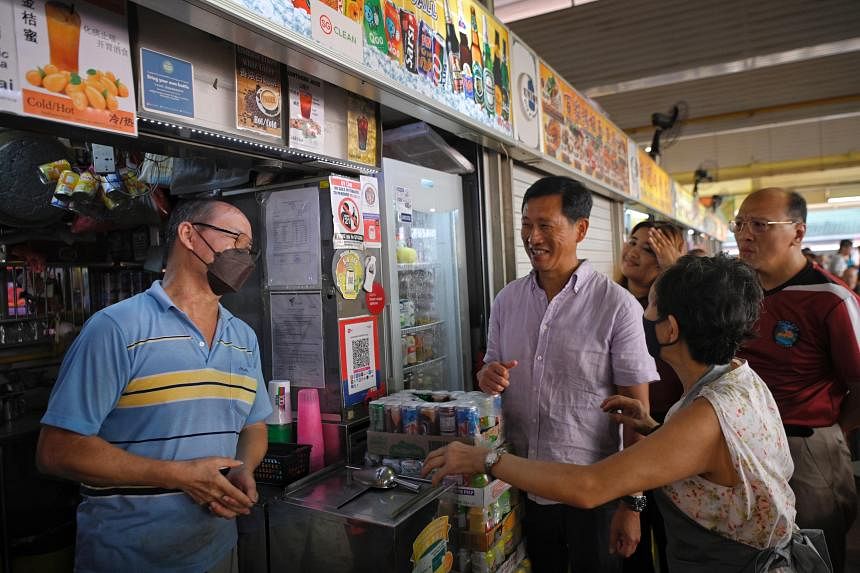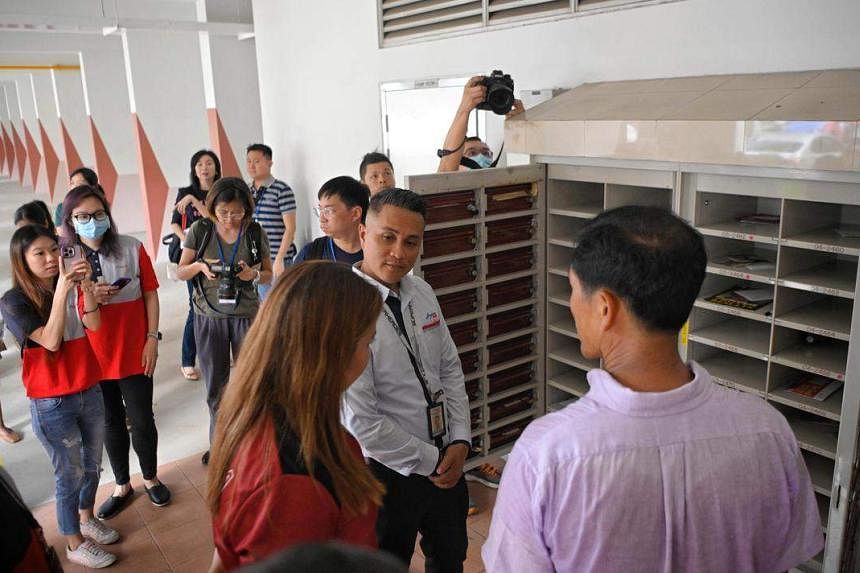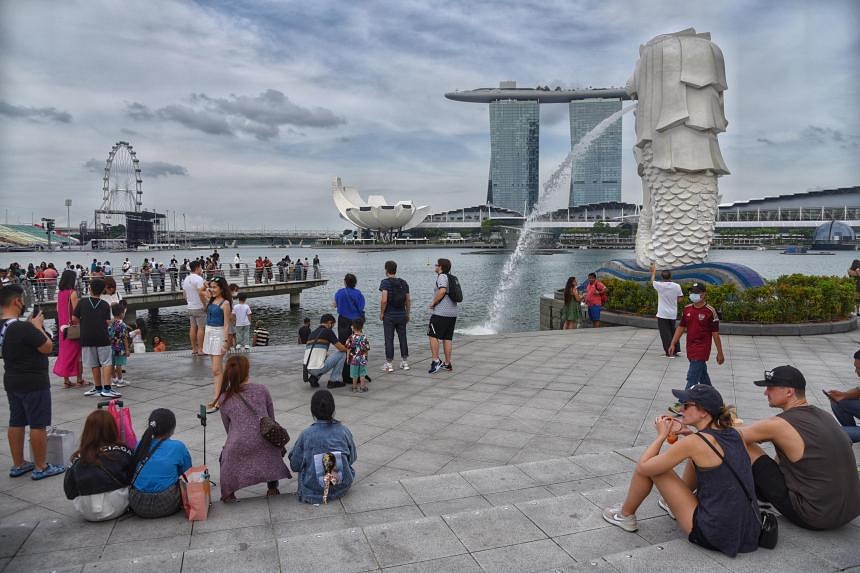from straitstimes.com:
Singapore has not seen surge in Covid-19 cases from travellers from China: Ong Ye Kung
In the last four weeks of 2022, about 200 travellers from China were detected to have Covid-19 – or less than 5 per cent of all imported cases in that period. PHOTO: AFP
Salma Khalik
Senior Health Correspondent
UPDATED
10 JAN 2023, 12:31 AM SGT
FacebookTwitter
SINGAPORE – There has been no surge in infections here on account of travellers from China, and Singapore’s
current Covid-19 measures are working and are appropriate, Health Minister Ong Ye Kung said on Monday. The Republic, however, will not be complacent and continues to monitor the situation.
Keeping infections in check is the low number of visitors from China and the fact that no new, more virulent variant has emerged there. Singapore’s highly vaccinated population has also helped.
The 38 weekly flights from China now bring in 700 to 1,000 travellers a day, which is less than 10 per cent of the pre-Covid-19 number, Mr Ong said in a ministerial statement in Parliament. Any increase in flights will be carefully calibrated, he added.
In the last four weeks of 2022, about 200 travellers from China were detected to have Covid-19 – or less than 5 per cent of all imported cases in that period. In contrast, Asean countries accounted for half of the imported cases here, with 15 per cent from the rest of Asia, 11 per cent from Europe and 9 per cent from the Middle East, said Mr Ong.
Imported cases make up only 5 per cent to 10 per cent of all infections. Of the seven imported cases that led to severe illness, only one was from China. These cases mainly comprised returning Singaporeans.
Furthermore,
no new variants have emerged in China, although given China’s population of 1.4 billion, there remain risks and uncertainties.
New variants can emerge from anywhere in the world, not just China, said Mr Ong. Already, more than 650 Omicron sub-variants have been identified, he said, “so we cannot jump at every sub-variant, no matter how sexy the name sounds”.
But he also warned: “We cannot be complacent. The measures may work now, but not permanently. We will continually assess the situation and, if need be, make adjustments or implement new measures... Our decisions must be based on science, on evidence and on data.”
Singapore has never totally dismantled its pandemic measures, said Mr Ong. Incoming travellers need to be fully vaccinated based on World Health Organisation standards or produce a negative pre-departure test.
This is neither the tightest nor the most liberal of border measures among countries, but somewhere in between, he said.
If Singapore were to impose stricter measures on travellers from China, should it do the same to travellers from countries that contribute to more infections and severe cases, he asked.
“How will other countries treat travellers from Singapore when we encounter another infection wave?” he said. “New infection waves are bound to start in Singapore from time to time, over and over again, as variants with immune escape emerge, protection from vaccines and previous infections wane, and re-infections increase.”
Most Singapore residents have been vaccinated or have recovered from mild infections, so the population has developed strong hybrid immunity, said Mr Ong.
He said: “Today, the probability of Covid-19 infections leading to severe illnesses or deaths for our population has become very low – comparable to influenza or pneumococcal infections.”
For instance, the number of Covid-19 patients in intensive care units was in the single digit over the past 30 days, although there were a few deaths, he noted.
Based on the severity rate today, the number of annual deaths caused by Covid-19 infections “is similar to that caused by influenza infections”, he said.
“Hence, with extensive vaccination coverage, we can treat Covid-19 as an endemic disease. Like influenza, top-line infection numbers should no longer be our preoccupation.”
Nevertheless, he warned that things could change as the pandemic is not over.
“What worries us most now is the emergence of a new, unknown and more dangerous variant of concern,” he said.
“It may possess worrying characteristics – escape vaccine protection, be more infectious and lead to more severe cases, which would be very bad news. A nightmare variant can knock us back to almost square one.”
Should that happen, Singapore may need to reinstate measures, such as strict border controls, quarantine for travellers and social restrictions like limits on group sizes, until a new and effective vaccine is developed.



















